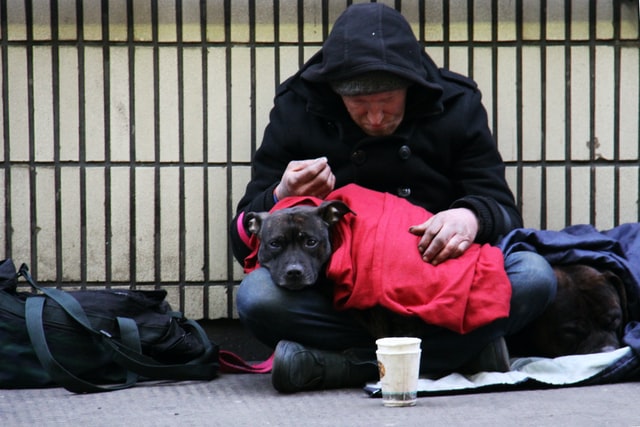The UK Prime Minister Boris Johnson has been urged by 100 civil groups to abandon universal credit cut. A united front was formed by various civil organizations concerned about Britons’ welfare, and they advised the Prime Minister not to cut the funding given to people. Amid the coronavirus outbreak pandemic that hit the world, the UK government felt the need to look after its citizens. This was a shared sentiment across many countries’ governments since the global crisis froze most economic activities, and many societies were plunged into poverty as jobs were lost and expenses kept on piling.

It is against this background that the UK government launched the universal credit aimed at sustaining the livelihood of Britons after being affected by covid-19. The corona effects were intense and led to the fall of businesses, with unemployment rates surging drastically. Those persons whose professions could not adopt the concept of ‘online working’ or ‘virtual entity’ were forced to abandon their jobs and landed into a world of turmoil. Such an occurrence was witnessed across the globe, and stats in various places showed an increase in the number of poor people since the beginning of the crisis.
To address inequality in his country, Boris Johnson saw it as necessary to roll out adequate funds channelled towards elevating the life of those impoverished. This idea was tossed around in many states where stimulus checks were doled out to the public, food stamps given to starving families, and other medical expenses paid off by the government. Due to a devastating outbreak, such moves were very commendable and showed how governments were prepared to look after their people. The British people were given £20 per week by the government fund, and it went a long way in aiding their financial crisis.
But since most economic activities have opened up due to the success of vaccination programs, governments are withdrawing those public funding programs, and withdrawal of these funds will cause “immense, immediate and avoidable hardship, as noted by the UK charities, unions, and think-tanks. According to the UK government’s plans, a phasing out of the £1 040-a-year increase will soon begin, and a tax credit will be worked from the end of September, “based on claimants’ payments dates” [Source]. Therese Coffey, Work, and Pensions Secretary cited how it is high time to let people work for themselves and focus on getting a salary out of sweat as they ushered back into ‘normal living conditions”.
Civil groups, who united into a coalition, opposed such views and argued that cutting the universal credit will affect even those who are going to work and undermine the government’s plans of trying to “level up” the country. The credit was implemented as a safety net that would put everyone at par in terms of their finances, so removing it will be regressing the progress of “equality” among the citizens. The coalition noted that “We are rapidly approaching a national crossroads which will reveal the true depth of the government’s commitment to improving the lives of families on the lowest incomes.”
Studies showed that low-income earners felt the sharp sting of the coronavirus, and the government was applauded for looking after these people. In a letter addressed to Boris, the coalition stated, “Imposing what is effectively the biggest overnight cut to the basic rate of social security since World War II will pile unnecessary financial pressure on around 5,5 million families, both in and out of work.”

A third of families with children will be affected if the government takes a wrong decision and bring hunger to their doorsteps. In a breakdown on the vulnerable people who depend on this initiative, Save The Children organization noted that around 3,5 million children are housed in residents that survived on this pay-out. Another group called Joseph Rowntree Foundation depicted how removing the service might cause about 500 000 people to suffer from hunger, and this figure includes 200 000 children [Source].
Research showed that “one in every 14 workers in the UK” will be affected by the Tories’ universal credit cut [Source]. Jonathan Reynolds, Shadow Work and Pensions Secretary, said, “The Government needs to stop claiming there is a choice between cancelling this cut and getting people back into work,” and he added that “It is not too late for the Conservatives to see sense and cancel their cut to Universal Credit, but time is running out.”
Others have alluded to billions of dollars used by the government during the pandemic and that it must not shorten its helping hand to poor communities. “We’ve spent £400bn through this pandemic – I don’t think we should withdraw support from the poorest right at this moment,” according to Mr. Mills of the Commons Work and Pensions Committee.
But a government spokesperson in support of cancelling the fund cited that “It was designed to help claimants through the economic shock and financial disruption of the toughest stages of the pandemic, and it has done so.”
But the civil groups are against those utterances, and their line of thought is centered on how the money was helping everyone, including the working class who cannot survive on their paycheques, which then dismisses the idea of cutting the fund because people are now going to work [Source]. The letter noted that the cut would quickly enact problems which can be avoided by not removing the credit plan and posited that “A strong social security system is a crucial first step to building back better. We strongly urge you to make the right decision.”
The situation’s intensity is shown by the unity expressed through a coalition of about 100 groups that operate on different ideologies. This can be used as evidence to show their deep concern for the public’s welfare. It seems like the plan to cut the pay-outs is attracting criticism from government officials, leading civil society groups, members of parliaments, and prominent politicians; hence that might be a good sign which might influence Boris’s final move. Prime Minister Boris Johnson and his administration are tasked to take a favourable decision regarding the vast innocent souls who are fed through the universal credit fund.







































